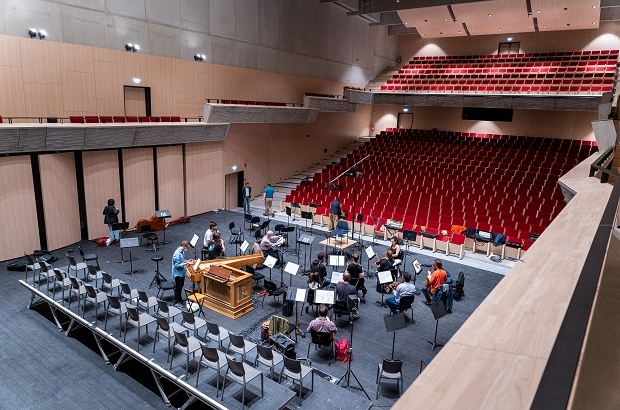- Daily & Weekly newsletters
- Buy & download The Bulletin
- Comment on our articles
Arts school students protest over impact of energy costs on culture sector
Soaring energy costs are having a strong, negative impact on the cultural sector, and actors within it are beginning to mobilise and speak out.
These actors include both those working professionally in the cultural sector and art school students.
A citizens’ collective called ‘Trop is te veel’ is planning to hold a demonstration in Brussels in early December, denouncing the difficulties faced by the cultural sector as a result of the energy crisis.
There was also a gathering at Mont des Arts with the aim of drawing attention to the situation.
Representatives say that many cultural venues and art schools will not be able to survive the crisis without a freeze on energy prices.
Having barely recovered from the effects of the pandemic, which saw a total shutdown of their sector, they say the latest energy problem is "one crisis too many".
The collective explained that some venues have had to close their doors, while others attempt to stay afloat through reducing staff and keeping the heat off in offices despite the cold.
“We've collected some pretty enlightening testimonies,” said Antoine Giet, actor and member of the collective in Brussels, who pointed specifically to painters and visual artists.
“Their work already requires them to have their own studio. This already requires additional costs. These people find themselves having to turn on the heat. We have heard from artists who work in the coldest conditions. You can't imagine a painter holding a brush with gloves on.”
Theatres are not doing much better. Some of the largest ones have seen their energy bills rise by several hundred thousand euros.
“Many other small structures tell us about increases of €30,000 or almost €100,000, depending on the size of the institution,” Giet said, adding that such funds mean less spending can go towards actual artistic creation.
“In a small theatre, €30,000 is the price of a big show that will be performed for a month, that will be rehearsed for a month, with a dozen people working on it for almost two months, with a scenography, with hundreds of people who will see it.”
The French-speaking Students' Federation (FEF) has also aligned itself with the movement. Art schools, too, are struggling to keep buildings warm enough for students to work comfortably.
Many school buildings are already in bad shape, damp and poorly insulated, making heating savings hard to come by.
“Students are much too cold and cannot study in good conditions,” explained Emila Hoxhaj, president of the FEF.
“They were already in a very complicated situation before the energy crisis. Now, it becomes even more difficult.”
The FEF also points to the underfunding of art schools: “For years, for example, the Royal Conservatory of Brussels has been denouncing the state of its infrastructure. How are we going to play the piano with gloves on? How will we be able to paint?”


















